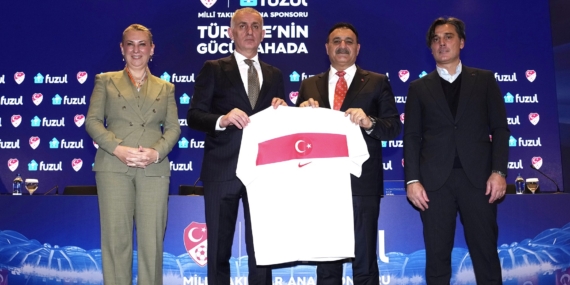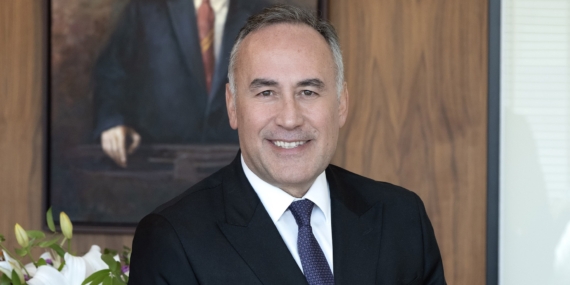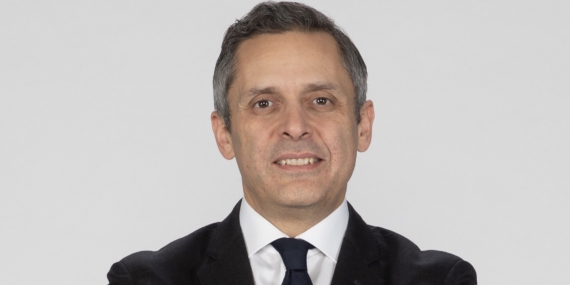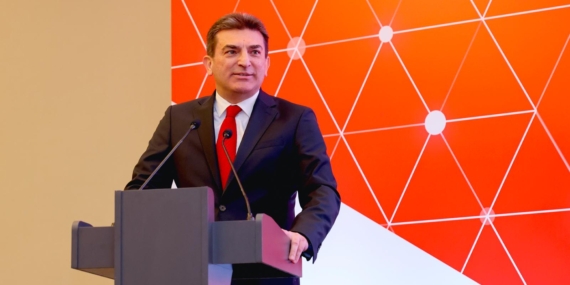Koronavirüs salgını tüm dünya ülkelerini ve ekonomilerini vurdu. Salgının en çok etkilediği bölgelerin başında gelen Avrupa’da ülkeler sert önlemler alarak tam kapanmaya giderken, İsveç salgınla mücadelede esnek bir strateji izleyerek dikkat çekti. İsveç’in tartışmalı salgın stratejisini, krizin ülke ekonomisine etkisini ve Avrupa Birliği’nin geleceğini İsveç’in İstanbul Başkonsolosu Peter Ericson ile konuştuk…
COVID-19 outbreak hit all countries and economies in the world. In Europe, which became epicenter of the pandemic, while most countries had to shut down and take strict measures, Sweden has drawn attention by choosing a different, ‘no-lockdown’ strategy. We talked to the Consul General of Sweden in Istanbul, Peter Ericson about his country’s controversial strategy, the impact of the pandemic on economy and the future of the European Union.
İsveç’in salgınla mücadele stratejisi çok tartışıldı. Siz ne düşünüyorsunuz? Gerçekten bir strateji var mıydı?
Evet, kesinlikle bir strateji var! Stratejinin temel amacı salgının ülkedeki yayılımını sınırlamak, yeterli sağlık kaynaklarının mevcut olmasını sağlamak, salgının kritik hizmetler üzerindeki etkisini sınırlamak ve insanlar ve şirketler üzerindeki etkisini hafifletmekti. Genel olarak zaten tüm ülkeler bunun için çalışıyor. Birçok yönden bu amaçlara ulaşıldı. Ama elbette bazı açılardan daha iyi yanıt verebilirdik.
Yine de, strateji çerçevesinde alınan kararların ve somut önlemlerin, o sırada elde olan en iyi bilimsel verilere dayandığını vurgulamak gerek. Tabi ki her şey planlandığı gibi gitmeyebilir, bir önlem bir hedefi olumlu etkilerken diğerini olumsuz yönde etkileyebilir.
Bir örnek vereyim; “İsveç okulları kapatmadı” konusu hakkında çok şey söylendi. Bu iddia sadece kısmen doğru. Liseler (10. sınıf ve üstü) ve üniversiteler hızla kapandı ve uzaktan öğretime geçti. Sadece anaokulları, ilkokul ve ortaokullar açık kaldı. Bunun birkaç nedeni vardı: Birincisi, tüm kanıtlar küçük çocukların hastalığı kapmadığını ve muhtemelen bulaşmaya katkıda bulunmadığını gösterdi. İkincisi, küçük çocuklar için uzaktan eğitim çok fazla işe yaramaz, hatta onlar için daha zor olabilirdi. Ayrıca kapatma uzun vadede çocukların öğrenme sürecini de olumsuz etkilerdi. Üçüncüsü ise eğer kreşler ve ilköğretim seviyesindeki okullar kapansaydı, sağlık personelinin en az üçte birini kaybedecektik, çünkü hastanelerde çalışmak yerine çocuklarıyla evde kalmak zorunda kalacaklardı. Bunun da salgına karşı koymak için tüm kaynaklara ihtiyaç duyulduğu bir dönemde korkunç bir etkisi olurdu.
Ayrıca, diğer ülkelerin denediği gibi ülkede daha genel bir kapatmanın uzun vadede sürdürülebilir olmadığı kanaatine varıldı. Bir aşı bulunana kadar ekonomiyi kapatmak imkansız olarak görüldü. Bunun yerine yaşlı bakım evlerine ziyaretler ve 50 kişinin üstündeki toplanmaların yasaklanması gibi sınırlı yasal düzenlemeleri ve halka tavsiyelerde bulunmayı tercih ettik.
Şu anda tüm bu öneriler zorunlu, herkesin uyması gerekiyor. Sosyal mesafe, hijyen kuralları, en ufak bir belirti varsa evde kalmak gibi. Evet restoranlar açık kaldı ama müşteriler arasında yeterli mesafe şartı arandı. Hatta bu tavsiyelere uymayan işletmeler durumu düzeltene kadar yetkililer tarafından kapatıldı.
Sweden’s strategy to combat the epidemic has been widely discussed. What are you thinking? Was there really a strategy?
Oh yes, there definitely is a strategy! The main aims of the strategy are to limit the spread of the infection in the country, to ensure that adequate health care resources are available, to limit the impact on critical services, and to alleviate the impact on people and companies. By and large, this is what all countries strive for. In many ways these aims have been achieved. As I just pointed out, there are also aspects of the response that could have been better.
Still, it’s important once again to stress that the practical execution of the strategy, the decisions and concrete measures, were based on the best available science at the time. Of course there were also trade-offs – one measure might affect one goal positively and at the same time another negatively.
Let me give an example. Much has been said about the fact that “Sweden didn’t close the schools”. That is only partly true. High-schools (grade 10 and up) and universities quickly closed and switched to distance learning. However, kindergartens, primary and lower secondary schools remained open. There were a number of reasons for that: First, all evidence suggested that small children did not contract the disease and presumably did not contribute to contagion. Secondly, for small children distance learning doesn’t work as well as for more grown-up (it might actually be difficult for them as well), and if the closing became long term it would impact the children’s learning for a long time. And third, if daycare and lower schools were to close, the health care system would loose at least a third of its staff, because they would have to stay home with their kids instead of working in hospitals and other care facilities. That would have had an enormous impact right at the time when all the resources were needed to counter the new disease.
Also, a more generalized “lock-down” of society that other countries have tried, was judged not to be sustainable in the longer term. To close down the economy until a vaccine became available was deemed impossible. So instead we opted for limited legal prohibitions, such as visitors to elderly care centers mentioned above and prohibition of events with more than 50 participants, while educating the public and issuing recommendations to individuals and to businesses.
Now, these recommendations are actually mandatory, everyone is supposed to follow them. And you know them already: maintain social distance, high level of hygiene, stay at home if you have the slightest symptom etc. So while for instance restaurants have remained open, they have been required to allow for sufficient distance between their customers, by blocking some tables or increasing the distance between tables. And actually, establishments that have not followed these recommendations have been closed down by the authorities, until they have fixed the situation.
Ülkeyi kapatmamak ekonomik bir karar mıydı? Şayet ekonomikse, bu karar İsveç ekonomisinin daha az etkilenmesine yardımcı oldu mu?
Bu karar, hastalığın kontrol altına alınmasında etkili olduğu düşünülen ve uzun vadede hem psikolojik hem de ekonomik açıdan sürdürülebilir olan şeylere dayanarak alındı. Asla salt ekonomik nedenler baskın değildi. İsveç, salgın başlamadan önce kamusal borcunun GSYİH’ye oranı itibarıyla yaklaşık %20 ile ekonomik bir krizi kaldırabilecek konumda. Krizden etkilenen bireyleri ve işletmeleri desteklemek için alınan farklı önlemlerle bu oran yüzde 10’lara ulaşıyor ve kamu borcu artıyor ancak bu sürdürülemez bir seviye olmayacak.
Aslında gelen bazı rakamlar da İsveç ekonomisinin Avrupa’da daha sert önlemler alan ülkeler kadar kötü etkilendiğini gösterdi. Bunun nedeni ülke salgında açık kalsa da İsveç’in ihracata bağımlı bir ekonomi olması mı? Pandemi İsveç ekonomisini nasıl etkiledi? En çok hangi alanlar zarar gördü?
Kimin daha az veya çok etkilendiğini söylemek için hala çok erken. Şüphesiz ticarete dayalı bir ülke olarak, ticaret ortaklarımız zarar görürse, ulusal politikalarımızdan bağımsız olarak biz de zarar görürüz. Diğer tüm ülkelerde olduğu gibi, seyahat ve turizm durma noktasına geldiğinde konaklama sektörü zarar görüyor. Keza Volvo Group (kamyonlar ve inşaat ekipmanları), Volvo Cars (otomobil) ve Scania (kamyon) gibi bazı büyük imalat şirketlerimiz de talep düşüşü nedeniyle üretimi durdurmak zorunda kaldı. Ama şimdi tekerleklerin tekrar dönmeye başladığına ve iyileşmenin daha önce düşünülenden daha hızlı olabileceğine dair işaretler var. Ayrıca İsveç kerestesine talep son zamanlarda arttı çünkü Kanadalı üreticiler kapanmak zorunda kaldı. Kısaca karışık bir tablo söz konusu. Diğer ülkelere kıyasla ekonomik olarak salgından nasıl çıkacağımız konusunda kesin yargılarda bulunmak için bir iki yıl beklememiz gerektiğini düşünüyorum.
“AVRUPA BİRLİĞİ KOORDİNELİ DAVRANAMADI”
Pandemi sırasında Avrupa Birliği ülkeleri birbirlerine -özellikle de İtalya’ya- yeterince yardım etmedikleri ve destek olmadıkları için eleştirildi. Covid-19’un gölgesinde Birlik ve geleceği hakkında ne düşünüyorsunuz? Bu süreçte gerçekten ‘birlik’ olunabildi mi sizce?
Açık söylemek gerekirse AB’nin en iyi dönemi olmadığı kesin. Aslında fiziksel destekten söz etmiyorum. Evet, durumun ciddiyetini anlamakta yavaş davrandık ve anlayınca da kişisel koruyucu ekipman ve belli başlı ilaçlar gibi önemli tıbbi malzemelerin tam zamanında teslim edilmesine güvendik, ki bunların çoğu Çin’den gelen sorunlu malzemelerdi. Herkes kendi ülkesinin ihtiyaçlarını karşılamanın derdine düştü.
Ancak sınır kapatmaları, ihracat yasakları ve diğer önlemlerle ilgili koordinasyonsuzluğu görmek üzücü oldu. Sağlık hizmetleri ulusaldır, yani normalde Birlik içinde bu tür konuları koordine etmiyoruz, ancak yine de bir AB konusu olan Schengen’in ücretsiz seyahat düzenlemelerinin kısa süre içinde çökmesi ve diğer bazı olaylar cesaret kırıcı. Umarım bu deneyimden öğreniriz ve normale dönüş daha koordineli olur.
“BİRLİK KRİZDEN DAHA GÜÇLÜ ÇIKACAK”
No-lockdown policy was an economic decision? If yes, did it help the Swedish economy to get less affected?
It was a decision based on what was deemed to be efficient in containing the disease, and what was sustainable in the long run, both psychologically and economically. Economic reasons where never predominant. Sweden is in a good position to take the financial hit, with a government debt before this whole thing started at a little more than 20% of GDP. Different measures to support individuals, communities and businesses affected by the crisis so far amounts to some 10% of GDP, which will increase government debt but not to an unsustainable level.
Actually, the numbers show that the Swedish economy got affected as bad as others in Europe, despite no lock-down . Is this mostly because Sweden is an export reliant economy? How did the pandemic effect Sweden’s economy? Which areas hit most?
I think both concerning the disease and the economy, it is far too early to know whether Sweden came out better or worse than any other country. This is still very much an evolving situation.
Clearly, as an trade-dependent country, if our trading partners suffer we will suffer, regardless of our national policies. Just as any other country, when travel and tourism grinds to a halt the hospitality business suffers. Some of our big manufacturing companies such as Volvo Group (trucks and construction equipment), Volvo Cars (automobiles) and Scania (trucks) have had to stop production and furlough staff (mainly at the government’s expense) because of a slump in demand. But now there are signs that the wheels start turning again, and that the recovery might be faster than previously thought. Then again, apparently the demand for Swedish timber actually increased lately, because the Canadian producers were forced to shut down. So it’s a difficult but somewhat mixed picture. And where we will end up economically compared to others, I think we will have to wait a year or two to make any definitive judgements.
EUROPEAN UNION WAS NOT WELL COORDINATED
During the pandemic, European Union (EU) countries were criticized for not helping and supporting enough each other (especially for Italy) What do you think about the Union under the shadow of Covid-19? Do you belive enough was done?
I think clearly this wasn’t the EU’s finest hour. And I actually don’t mean the physical support to each other. Yes, I do think that we were slow in understanding the gravity of the situation, and once we realized it turned out that we were all relying on just-in-time delivery of crucial supplies such as personal protective equipment, certain types of pharmaceuticals and other hospital supplies, much of it from China actually, which turned out to be problematic. So everybody was scrambling to secure their own country’s needs.
But the uncoordinated response concerning border closures, export bans and other measures was sad to see. Health care is a national competence, meaning we normally don’t coordinate those issues within the Union, but still, to see how the Schengen free travel arrangements, which of course is an EU issue, just crumbled within days, and some of the other incidents that you have heard of, that’s disheartening. Hopefully we will learn from the experience, and I think that the return to normal will be at least better coordinated, though hardly perfectly.
“EUROPEAN UNION WILL COME OUT STRONGER”
Tüm bunların ışığında salgın sonrası AB’nin geleceğini nasıl görüyorsunuz? Sizce bu salgın AB’yi güçlendirecek mi zayıflatacak mı?
Avrupa Birliği’nin ve İsveç’in AB üyeliğinin güçlü bir destekçisiyim. İsveçlilerin büyük bir çoğunluğu ile aynı duyguyu paylaşıyorum. Korona krizinin getirdiği birçok zorluğu görüyorum ve doğrusunu söylemek gerekirse Birliğin ilerlemesinin önünde bazı riskler var. Bununla birlikte, geçmiş deneyimlerden ve AB’nin birçok kriz yaşamış olmasından yola çıkarak şunu söyleyebilirim, her krizden sonra AB zorluklara uyum sağlayıp yeni yollar buldu çünkü üye devletler için iyi işleyen bir AB’ye sahip olmak herkesin çıkarına. Daha açık bir ifadeyle güçlü ve etkin bir Avrupa Birliği hepimiz için iyi ve birlikte olmak bizi daha güçlü kılıyor.
Bence pandemi hazırlık ve koordinasyonu güçlendirecek. Zorlu müzakerelerin ardından, salgından en çok etkilenen ülkelere ve sektörlere yardımcı olan, iyileşmeyi teşvik eden ve aynı zamanda ekonomimizin yeşil dönüşümünü de güçlendiren bir finansal paket çıkacağından eminim. Bu yüzden iyimser olma eğilimindeyim. Bence AB bu krizden daha güçlü ve daha iyi çıkacak. Tabii ki yarım yüzyılın en büyük ekonomik şokunu atlatmak biraz zaman alacak ama eminim bunu başaracağız.
How do you see the future of EU after the pandemic? Do you think the pandemic will strenghten or weaken the Union?
I am a strong supporter of the European Union and Sweden’s membership in the EU. That I actually share with a vast majority of Swedes. I see the many challenges raised by the corona crisis and clearly there are risks for the Union going forward. However, judging from past experience – and the EU has experienced many crises – after each crisis the EU adapts and finds new ways of rising to the challenges, because Member States clearly see that the benefits of having a well-functioning European Union that can handle the difficulties of the modern world is both in their individual and their collective interest. Or to put it more plainly: a competent, efficient and capable European Union is good for each one of us, and at the same time being together makes us stronger.
I think that pandemic preparedness and coordination will be strengthened. I’m sure that, after very difficult negotiations of course, there will be a financial package that assists the countries and the industries hardest affected by the virus, that stimulates the recovery, and at the same time strengthens the green transformation of our economy. So I tend to be an optimist. I think the EU will come out stronger and better. Of course, the biggest economic shock in half a century will take some time do get over. But I’m sure we will.
Peter ERICSON
İsveç İstanbul Başkonsolosu. / Consul General of Sweden in Istanbul.
























